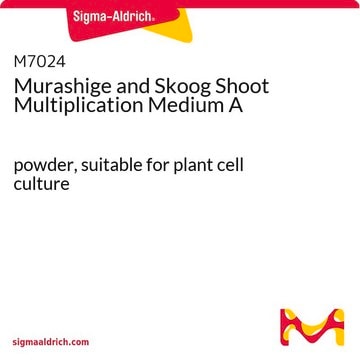D5912
6-(γ,γ-Dimethylallylamino)purine
suitable for plant cell culture, BioReagent, ≥90%
Synonym(s):
N6 dimethylallyladenine, 2iP, N6-(2-Isopentenyl)adenine
About This Item
Recommended Products
product line
BioReagent
Assay
≥90%
form
powder
technique(s)
cell culture | plant: suitable
application(s)
agriculture
storage temp.
−20°C
SMILES string
C\C(C)=C\CNc1ncnc2[nH]cnc12
InChI
1S/C10H13N5/c1-7(2)3-4-11-9-8-10(13-5-12-8)15-6-14-9/h3,5-6H,4H2,1-2H3,(H2,11,12,13,14,15)
InChI key
HYVABZIGRDEKCD-UHFFFAOYSA-N
Looking for similar products? Visit Product Comparison Guide
Application
Biochem/physiol Actions
Storage Class Code
11 - Combustible Solids
WGK
WGK 3
Flash Point(F)
Not applicable
Flash Point(C)
Not applicable
Personal Protective Equipment
Certificates of Analysis (COA)
Search for Certificates of Analysis (COA) by entering the products Lot/Batch Number. Lot and Batch Numbers can be found on a product’s label following the words ‘Lot’ or ‘Batch’.
Already Own This Product?
Find documentation for the products that you have recently purchased in the Document Library.
Customers Also Viewed
Our team of scientists has experience in all areas of research including Life Science, Material Science, Chemical Synthesis, Chromatography, Analytical and many others.
Contact Technical Service












